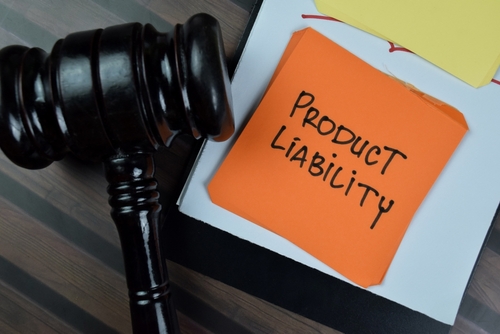If you’ve been injured by a defective product, your first instinct may be to return it to the store or manufacturer to seek a refund or replacement. However, doing so could harm your ability to file a personal injury claim or lawsuit. The defective product is critical evidence that can establish the cause of your injury and support your case. Keeping the product and providing it to your defective product lawyer ensures it can be analyzed and presented as evidence to strengthen your claim.
If you’ve been injured by a dangerous or defective product, the legal team at Shapiro, Washburn & Sharp can evaluate your case to determine what legal recourse you may have. We can assess your claim and guide you through the legal process to ensure you receive the compensation you deserve. Call us today at 833-997-1774 for a free consultation.
Why Is the Defective Product Critical to My Case?
The defective product serves as the centerpiece of your personal injury case because it is tangible evidence of what caused your injury. Your claim will rely on proving that the product was defective, dangerous, or improperly designed or manufactured. Without the product, it may be difficult to demonstrate the defect to a court or insurance company.
Having the product allows your attorney to hire experts to examine it and identify whether the defect was due to poor design, manufacturing errors, or a lack of proper warnings. For example, if a pressure cooker exploded due to a faulty valve, having the actual product allows an expert to confirm the defect and explain how it caused your injuries. Returning the product to the manufacturer could result in its alteration, destruction, or use in their defense, jeopardizing your case.
Should I Keep the Product Even If the Manufacturer Requests It Back?
You should keep the defective product, even if the manufacturer asks for its return. Manufacturers may request the product under the guise of investigating the issue or offering a refund, but this could work against you in a legal claim. Once the product is in their possession, they may repair it, destroy it, or dispute that it was defective in the first place, leaving you without critical evidence.
If the manufacturer insists on examining the product, consult your attorney first. Your lawyer can arrange for the inspection to occur in a controlled manner, ensuring the product remains intact and available for use in your case. This approach protects your rights and preserves the evidence needed to prove your claim.
What Should I Do to Preserve the Product for My Claim?
To protect your case, it’s important to preserve the defective product properly. Store it in a safe, secure place to prevent further damage or alterations. Take detailed photographs of the product from all angles, capturing any visible defects, damage, or warning labels.
Additionally, keep any accessories, manuals, or packaging that came with the product, as these can provide further evidence about how it was marketed or whether adequate warnings were provided. Document how and when the injury occurred, including a description of how the product was being used at the time. Share this information with your attorney, who will use it to build your case.
How Can My Lawyer Use the Product in a Defective Product Lawsuit?
Your personal injury lawyer will use the defective product to establish the foundation of your claim. They may work with product engineers, safety experts, or forensic investigators to analyze the product and identify its defects. This analysis can demonstrate whether the product was poorly designed, improperly manufactured, or lacked necessary warnings or instructions.
The product itself can also serve as compelling evidence in court, allowing a judge or jury to see firsthand what caused your injury. Your attorney can use it to show the specific defect, explain how it led to your harm, and counter any claims by the manufacturer that the product was safe or that you misused it. Retaining the product gives your lawyer the tools they need to build a strong case on your behalf.
What Are the Risks of Returning or Discarding a Defective Product?
Returning or discarding a defective product can severely weaken your ability to pursue a claim or lawsuit. Once the product is out of your possession, you lose control over its condition and availability as evidence. If it is repaired, destroyed, or altered by the manufacturer, proving that it caused your injury becomes much more difficult.
Without the product, your case may rely solely on witness testimony, medical records, and other indirect evidence, which may be less persuasive to a court or insurance company. Keeping the product ensures that your claim is supported by strong, tangible evidence, improving your chances of a successful outcome.
What Should I Do If a Defective Product Has Injured Me?
If you suffer an injury due to a defective product, it is essential to act quickly, gather as much evidence as possible, and consult with a qualified defective product injury attorney to navigate the complexities of your claim effectively.
At Shapiro, Washburn & Sharp, we have decades of experience handling personal injury claims involving dangerous and defective products. We understand how to navigate the legal process and work with you to maximize the value of your case. Call us at 833-997-1774 to schedule a free consultation, and let us help you get the compensation you deserve.
